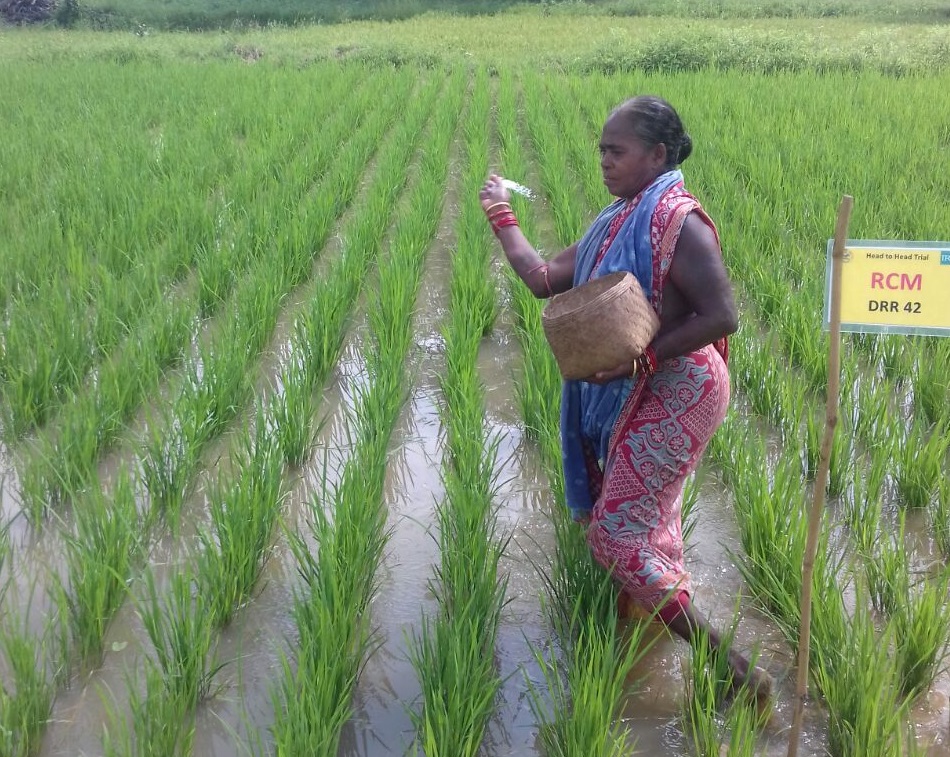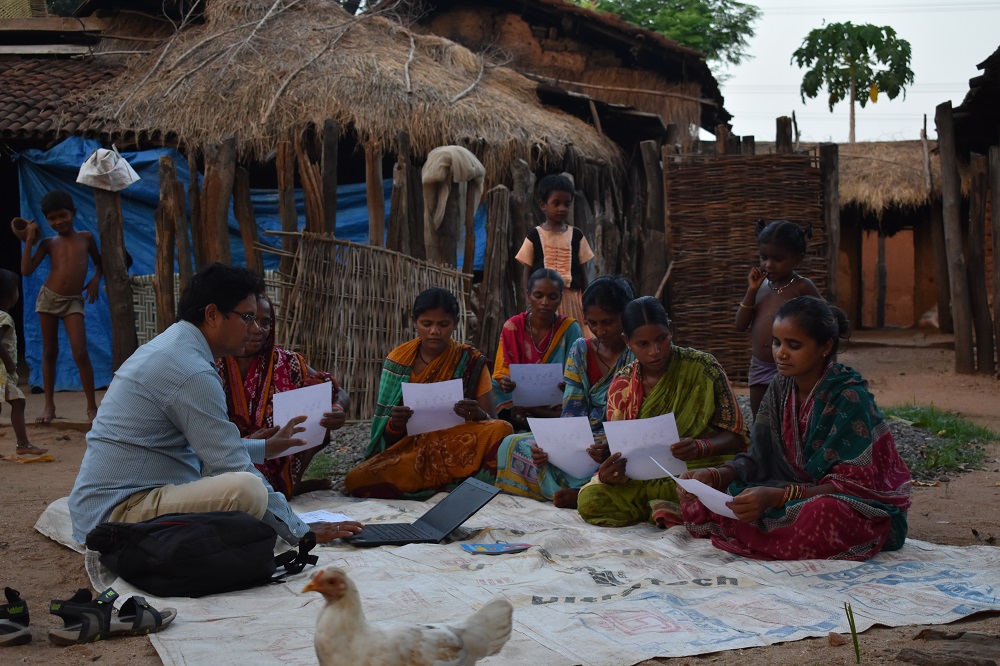Jagyasini Dharua’s story is one of adversity and optimism, from a struggling farmer to a leader, in a male-dominated sector
In India, women’s role in agriculture has been traditionally limited to transplanting, weeding, and similar tasks. Although rural women play a significant role in agriculture, their leverage to influence decision-making for purchasing and applying fertilizer and other inputs in the field remains low.
Jagyasini Dharua, a woman farmer from Jujumara Block in Sambalpur District in Odisha has 0.8 hectare of land on which she grows seasonal crops such as vegetables. The earnings from their farm, however, were never enough to sustain her family of five. Saving over the years, they managed to lease a plot to cultivate rice. Yet, their income remained low because they used traditional practices for rainfed conditions.
Things started to change for Mrs. Dharua when she joined a self-help group (SHG) in her village organized by the Sambalpur Social Service Society (SSSS), a non-profit organization, as part of a livelihood generation program. Her interest and natural leadership skills elevated her to the SHG presidency. Like most women leaders, Mrs. Dharua finds fulfillment in nurturing others to accomplish their dreams. She motivated the other women farmers in her village to apply for group loans and invest more in agricultural inputs and equipment and manage their farms better.
In May 2017, the International Rice Research Institute (IRRI), in collaboration with SSSS, began quality seed production training in the village and with members of the SHG using stress-tolerant rice varieties. Along with the training and new varieties, Mrs. Dharua received a tailored recommendation for her farm through Rice Crop Manager.
She was also a pioneer for testing new ideas. Agricultural trials conducted by women farmers in Odisha are still a novelty. IRRI, through its project with the Government of Odisha, is helping women farmers establish field crop trials. Guided by experts at IRRI, Mrs. Dharua offered to have demonstration trial plots on her land to observe the comparable effects of the recommended varieties and Rice Crop Manager technology over traditional varieties and paddy cultivation practices. At the end of the season, crop cuts were conducted on her farm with representatives from the state Department of Agriculture, IRRI, nongovernment organizations, and other farmers in her village. From the crop cuts, Mrs. Dharua observed the benefits of using less fertilizer but applying balanced nutrients at the right time.
“The results of improved management practices and varieties over traditional practices were quite definite,” she said. “That season, I earned USD 212 more per hectare.”
Her success encouraged neighboring farmers to follow suit.
Mrs. Dharua plans to lease more land on which she can cultivate rice using improved management practices and better rice varieties. More importantly, she has transitioned from a subsistence farmer to an empowered one.
“This experience has enhanced my knowledge on rice cultivation,” Mrs. Dharua confidently said. “Now, I consider myself on a par with the male farmers in my village.”
______________
Ms. Bharti is an agriculture research and development specialist, Dr. Padbhushan is a soil scientist, Ms. Samantaray is a senior communications specialist, and Dr. Sharma is a nutrient management specialist at IRRI India.









